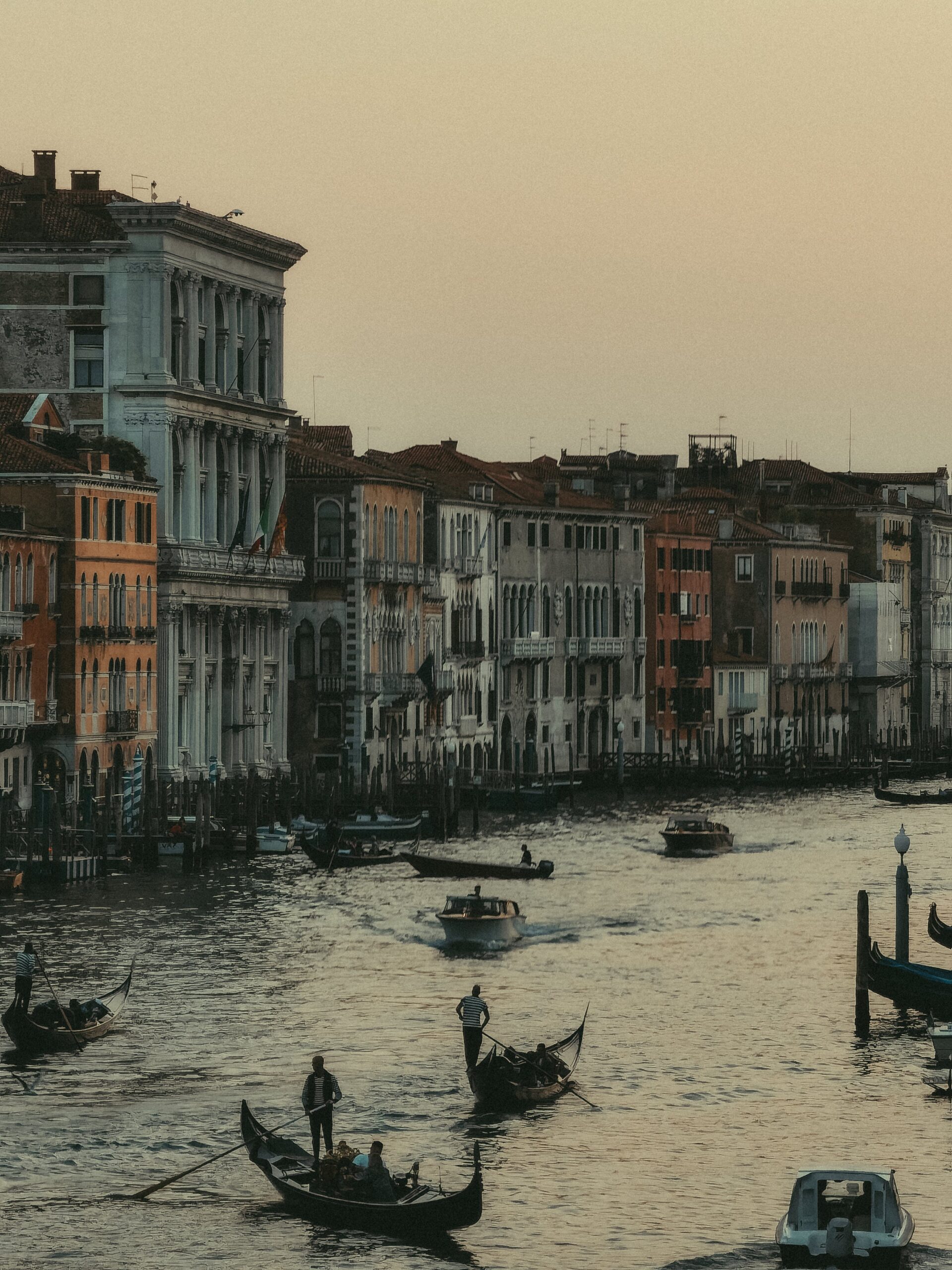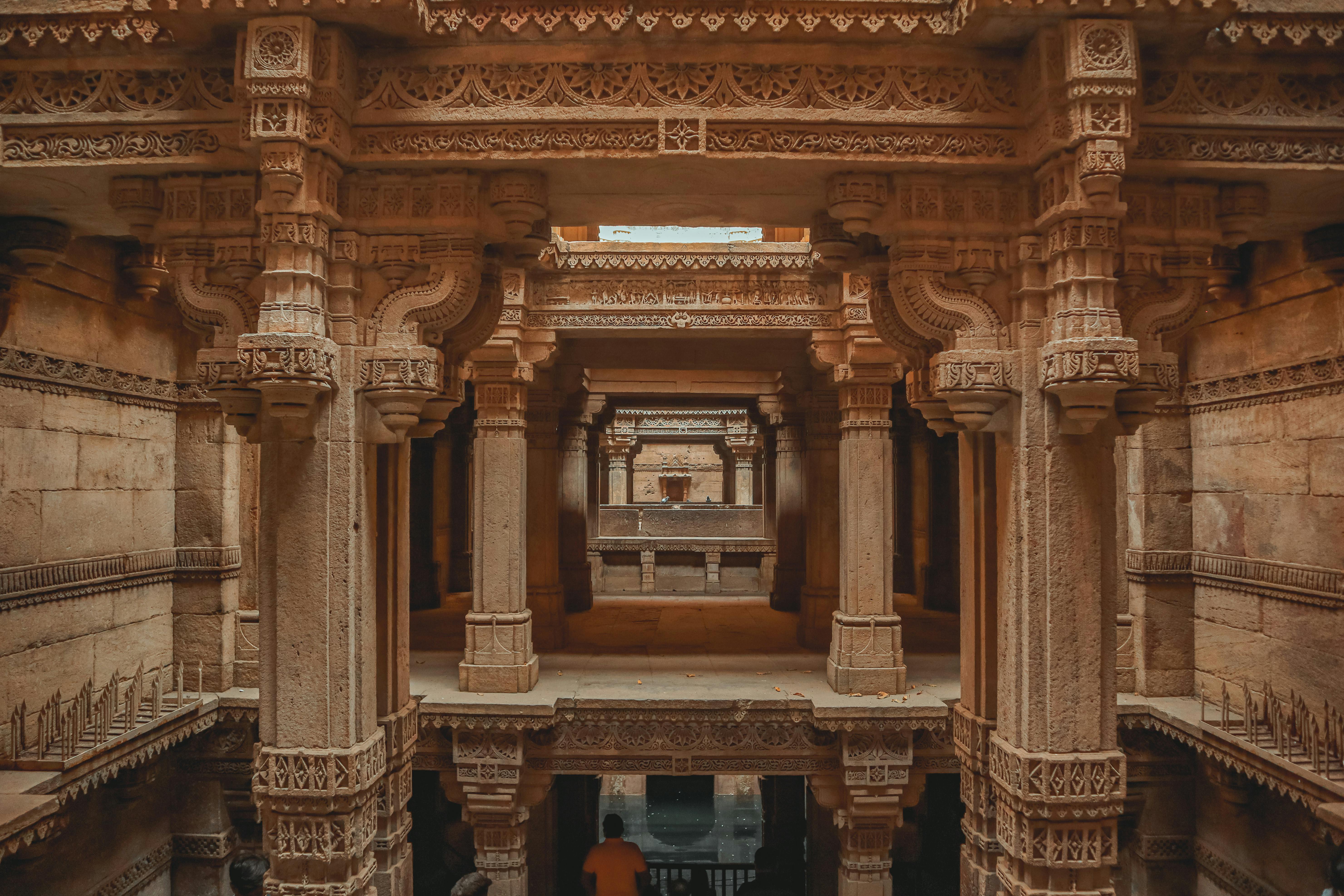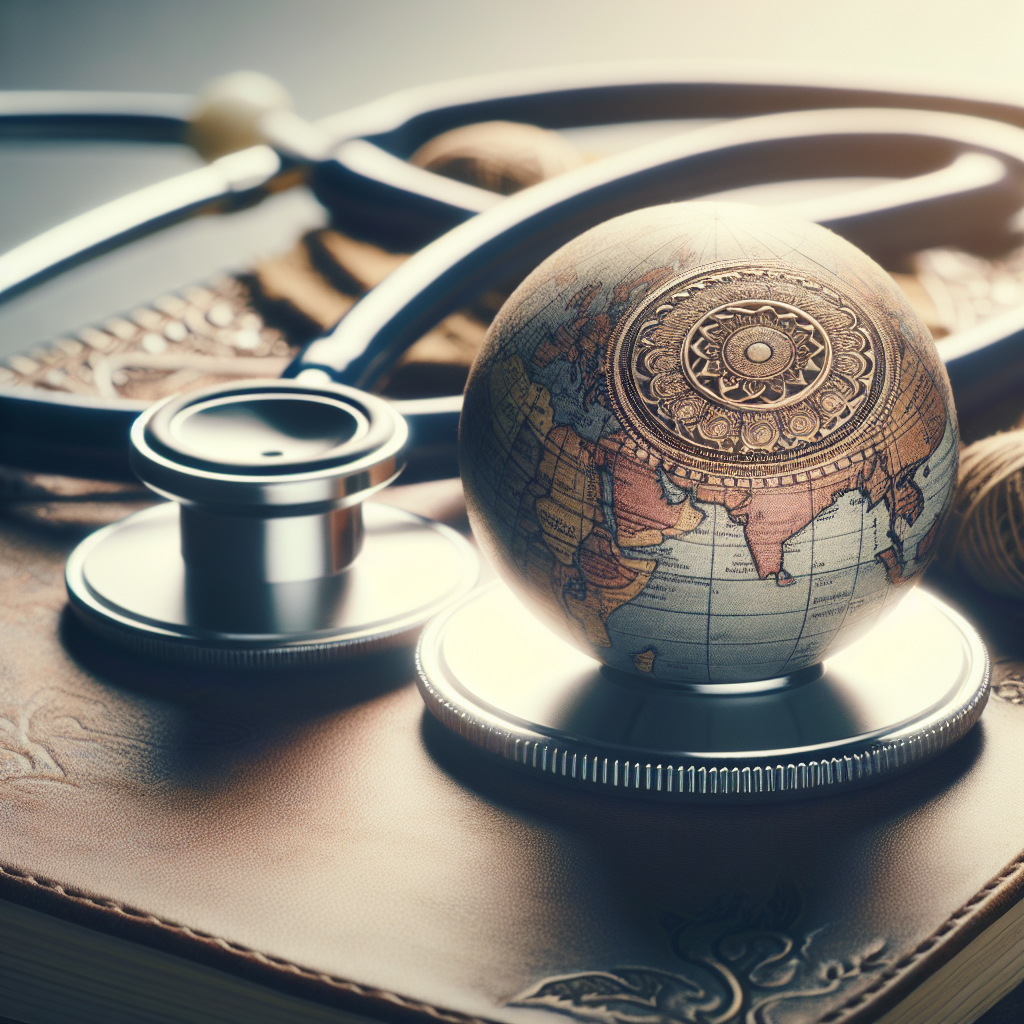Are you considering traveling to India for medical treatment? Look no further! In this article, we will provide you with essential safety tips to ensure that your health is the top priority during your medical tourism experience in India. With its world-class healthcare facilities and rich cultural heritage, India has become a popular destination for those seeking high-quality medical treatments. However, it is crucial to be well-informed and prepared to protect yourself and make the most out of your medical journey. So, let’s dive in and discover the key safety measures that you should keep in mind before embarking on your medical tourism adventure in India.

Choose a Reputable Medical Facility
When considering medical tourism, it is essential to choose a reputable medical facility. Begin by researching the credentials and certifications of the facilities you are interested in. Look for accreditations from recognized organizations such as the Joint Commission International (JCI) or the International Organization for Standardization (ISO). These certifications ensure that the facility meets international healthcare standards and adheres to strict quality and safety protocols.
In addition to credentials, it is crucial to read reviews and testimonials from previous patients. Online platforms and forums can provide valuable insights into the experiences of others who have sought medical treatment in the facility you are considering. Pay attention to the overall satisfaction levels, professionalism of the staff, and the effectiveness of the treatment received. This way, you can get a sense of the facility’s reputation and make an informed decision.
Research the facility’s credentials and certifications
Before finalizing your decision, thoroughly research the credentials and certifications of the medical facility. Look for internationally recognized accreditations such as JCI or ISO.
Read reviews and testimonials from previous patients
Check online platforms and forums for reviews and testimonials from previous patients who have sought treatment in the facility. This can provide valuable insights into the facility’s reputation and the experiences of others.
Ensure the hospital follows international healthcare standards
Make sure the facility meets international healthcare standards by verifying their certifications and accreditations. These standards ensure quality and safety in medical procedures and treatments.
Consult with Medical Professionals
Before embarking on your medical tourism journey, it is crucial to seek advice from your local healthcare provider. They can provide insights into the suitability of medical tourism for your specific condition and offer guidance on choosing the right facility. Your local healthcare provider will have access to your medical history and can advise you on any potential risks or complications associated with traveling for medical treatment.
Once you have received advice from your local healthcare provider, it is important to consult with the medical professionals at the chosen facility. Schedule a consultation to discuss your medical history, current medications, and any specific concerns you may have. This will help the medical team at the facility assess your condition accurately and develop a personalized treatment plan.
Seek advice from your local healthcare provider before traveling
Consult with your local healthcare provider to understand the suitability of medical tourism for your condition. They can provide valuable insights and guidance on choosing the right facility.
Consult with the medical professionals at the chosen facility
Schedule a consultation with the medical professionals at the chosen facility to discuss your medical history, current medications, and any concerns you may have. This will help them develop an accurate treatment plan.
Discuss your medical history and any current medications
During your consultation, provide the medical professionals with your complete medical history and a list of any current medications you are taking. This information is crucial for accurate diagnosis and treatment planning.

Verify the Credentials of Medical Staff
To ensure the quality of care you will receive, it is important to verify the credentials of the medical staff at the facility. Check if the doctors and surgeons are qualified, experienced, and board-certified in their respective specialties. This information can usually be found on the facility’s website or by directly asking the staff.
In addition to qualifications, it is essential to confirm if the medical staff is fluent in your language. Effective communication between you and the medical team is vital for a successful treatment experience. If language barriers exist, inquire about the availability of translation services or interpreters who can facilitate effective communication.
Lastly, ask about the success rates of previous procedures performed by the medical staff. Understanding their track record can give you confidence in their abilities and increase your trust in the facility.
Ensure the doctors and surgeons are qualified and experienced
Verify the qualifications, experience, and board certifications of the doctors and surgeons at the facility. This information can usually be obtained from the facility’s website or by asking the staff directly.
Check if the medical staff is fluent in your language
Effective communication between you and the medical staff is crucial. Confirm if the medical staff is fluent in your language, or inquire about the availability of translation services or interpreters.
Ask about the success rates of previous procedures
Inquire about the success rates of previous procedures performed by the medical staff. This information will give you an idea of their track record and their expertise in the specific treatment you are seeking.
Evaluate the Medical Technology and Facilities
When considering a medical facility for treatment, it is important to evaluate the available medical technology and the overall condition of the facilities. Inquire about the availability of advanced medical equipment and technology that is necessary for your specific treatment. State-of-the-art equipment can contribute to better diagnosis, treatment, and overall healthcare outcomes.
Additionally, check if the facility maintains cleanliness and hygiene standards. Clean and well-maintained facilities reduce the risk of infections and ensure a safe environment for patients. You can request information on the facility’s infection control protocols and its commitment to maintaining hygiene.
Lastly, ensure that the facility has emergency services and intensive care units in case of any unforeseen complications during or after your treatment. Having these services readily available can provide peace of mind and ensure prompt and appropriate care if needed.
Inquire about the availability of advanced medical equipment
Ask about the availability of advanced medical equipment and technology that is necessary for your specific treatment. State-of-the-art equipment can contribute to better healthcare outcomes.
Check if the facility maintains cleanliness and hygiene
Prioritize facilities that maintain high cleanliness and hygiene standards. Request information on the facility’s infection control protocols to ensure a safe environment for your treatment.
Ensure the presence of emergency services and intensive care units
Verify that the facility has emergency services and intensive care units in case of any unforeseen complications. Prompt and appropriate care is essential for patient safety.

Understand the Treatment Process
Before proceeding with your medical tourism journey, it is crucial to have a comprehensive understanding of the proposed treatment plan. Request detailed information from the medical professionals about the specific procedure, its expected duration, and the recovery process. This will help you mentally and physically prepare for the treatment and set realistic expectations.
During your consultation, it is essential to seek clarification on any aspects of the treatment plan that you do not fully understand. Discuss alternative treatment options, if applicable, and ask about potential risks and complications associated with the procedure. Understanding these factors will enable you to make an informed decision about your treatment.
Get detailed information about the proposed treatment plan
Request detailed information about the specific procedure, including its expected duration and the recovery process. This will help you mentally and physically prepare for the treatment.
Clarify the expected duration of the treatment and recovery
Seek clarification on the expected duration of the treatment itself and the estimated recovery time. Understanding these timelines will help you plan your stay and make arrangements accordingly.
Discuss alternative options and potential risks
During your consultation, discuss alternative treatment options, if any, and inquire about potential risks and complications associated with the procedure. This will help you make an informed decision about your treatment.
Consider the Cost and Insurance Coverage
When planning for medical tourism, it is important to consider the cost implications and insurance coverage. Compare the treatment costs with other facilities to ensure that you are getting a fair price. Keep in mind that lower costs should not be the sole deciding factor, as quality of care should take priority.
Check if your insurance coverage extends to medical tourism expenses. Contact your insurance provider directly to understand the extent of coverage and any requirements or documentation needed. If your insurance does not cover medical tourism, explore other options such as medical travel insurance that specifically caters to this purpose.
Lastly, discuss payment options and refund policies with the chosen facility. Understand their terms and conditions, and ensure that you are comfortable with the financial aspects of your medical treatment.
Compare the treatment costs with other facilities
To ensure a fair price, compare the treatment costs with other facilities offering similar services. Remember, quality of care should take priority over low costs.
Check if your insurance covers medical tourism expenses
Contact your insurance provider to understand the extent of coverage for medical tourism expenses. If coverage is limited or unavailable, explore options for medical travel insurance.
Discuss payment options and refund policies
Before finalizing your decision, discuss payment options and refund policies with the chosen facility. Ensure that you are comfortable with the financial aspects of your medical treatment.
Arranging Travel and Accommodation
When planning for medical tourism, it is essential to arrange your travel and accommodation in a way that aligns with your treatment schedule. Plan your travel itinerary, keeping in mind the dates of your consultations, procedures, and follow-up appointments. Allow ample time for rest and recovery after your treatment.
Booking accommodations near the medical facility is advisable to minimize travel time and ensure easy access to the facility. Consider factors such as proximity, comfort, and availability of support services when choosing accommodation options.
Additionally, make transportation arrangements for hospital visits and follow-up appointments. This may include hiring a local taxi service, using public transportation, or arranging for other transportation options provided by the facility.
Plan your travel itinerary to align with the treatment schedule
Make a detailed travel itinerary that aligns with the dates of your consultations, procedures, and follow-up appointments. Allow for rest and recovery after your treatment.
Book accommodations near the medical facility
Choose accommodations that are near the medical facility to minimize travel time and ensure easy access. Consider factors such as proximity, comfort, and availability of support services.
Ensure transportation arrangements for hospital visits
Make transportation arrangements for hospital visits and follow-up appointments. This may include hiring a local taxi service, using public transportation, or utilizing transportation options provided by the facility.
Take Precautions for Personal Safety
As you prepare for your medical tourism journey, it is important to take precautions for your personal safety. Research the local area and its safety conditions to familiarize yourself with any potential risks or areas to avoid. Stay updated on travel advisories and follow any guidelines or warnings issued by the authorities.
Take necessary vaccinations before traveling to protect against any prevalent diseases. Consult with your local healthcare provider or a travel health clinic to determine the required vaccinations based on your specific destination.
Additionally, take precautions against food and waterborne illnesses. Drink bottled or boiled water, avoid consuming raw or undercooked food, and maintain proper hand hygiene. These simple measures can greatly reduce the risk of contracting illnesses during your stay.
Research the local area and its safety conditions
Familiarize yourself with the safety conditions of the local area by conducting thorough research. Understand any potential risks or areas to avoid.
Follow travel advisories and take necessary vaccinations
Stay updated on travel advisories and follow guidelines or warnings issued by the authorities. Consult with your local healthcare provider or a travel health clinic to determine the necessary vaccinations for your destination.
Take precautions against food and waterborne illnesses
To prevent food and waterborne illnesses, drink bottled or boiled water, avoid consuming raw or undercooked food, and maintain proper hand hygiene throughout your stay.
Cultural Sensitivity and Communication
When traveling for medical treatment, it is important to be culturally sensitive and respectful of the local customs and norms. Familiarize yourself with the cultural norms and etiquettes in India to avoid unintentionally offending anyone. Research online or seek guidance from locals or your medical facility to understand the appropriate behavior in different situations.
Maintain an open-minded attitude and embrace the cultural diversity of India. This will help you build positive relationships with the locals and enhance your overall experience during your medical tourism journey.
If language barriers exist, consider utilizing translation services or interpreters. Effective communication is essential for accurate understanding of your condition and treatment instructions.
Learn about the cultural norms and etiquettes in India
To avoid unintentional offense, familiarize yourself with the cultural norms and etiquettes in India. Research online or seek guidance from locals or your medical facility.
Be respectful and open-minded towards the local customs
Maintain a respectful and open-minded attitude towards the local customs in India. Embrace cultural diversity and engage with the local community in a positive manner.
Use translation services or interpreters, if required
If language barriers exist, consider using translation services or interpreters to facilitate effective communication with the medical staff. This will help ensure accurate understanding of your condition and treatment instructions.
Post-Treatment Follow-up Care
Following your medical treatment, it is important to discuss post-treatment care instructions with the medical staff at the facility. Understand any restrictions, medications, or follow-up appointments that are necessary for a successful recovery.
Arrange for follow-up appointments and check-ups with the chosen facility or your local healthcare provider. These appointments are crucial for monitoring your recovery progress and ensuring any necessary adjustments to your treatment plan.
Throughout the recovery process, stay connected with your local healthcare provider for ongoing care and support. They can provide guidance and assistance as you transition back to your home country and resume your regular healthcare routine.
Discuss post-treatment care instructions with the medical staff
Before leaving the facility, have a detailed discussion with the medical staff about the post-treatment care instructions. Understand any restrictions, medications, or follow-up appointments that are necessary for a successful recovery.
Arrange for follow-up appointments and check-ups
Schedule follow-up appointments and check-ups as recommended by the medical staff or your local healthcare provider. These appointments are crucial for monitoring your recovery progress and making any necessary adjustments to your treatment plan.
Stay connected with your local healthcare provider for ongoing care
Stay connected with your local healthcare provider for ongoing care and support throughout the recovery process. They can provide guidance and assistance as you transition back to your home country and resume your regular healthcare routine.
In conclusion, choosing a reputable medical facility, consulting with medical professionals, verifying the credentials of medical staff, evaluating the technology and facilities, understanding the treatment process, considering the cost and insurance coverage, arranging travel and accommodation, taking precautions for personal safety, practicing cultural sensitivity, and ensuring post-treatment follow-up care are all essential steps to having a successful and safe medical tourism experience in India. By being thorough in your research and preparation, you can have peace of mind and focus on your health and well-being during your medical journey.
